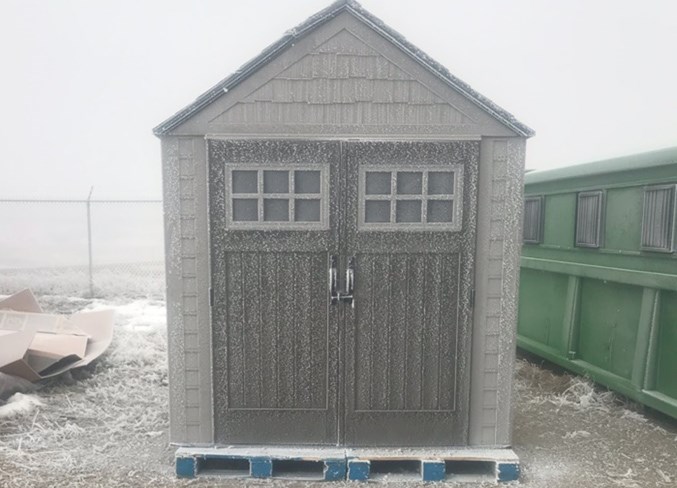At select transfer sites, Rocky View County (RVC) is offering a new way to divert usable household goods away from the landfill.
“At the Bragg Creek, Langdon and Irricana sites, we have donation sheds set up where people can bring unwanted, but still in good condition…household items for donation,” said Jennifer Koole, lead solid waste and recycling advisor.
According to Koole, the donation sheds were installed throughout January to collect what she described as “garage sale items” – household items with reuse value such as electronics, sports equipment, toys, games, cutlery, bakeware, dishes or small household appliances. Residents are asked to package donations in a box of some sort, Koole added, so they can be easily stacked in the sheds.
While the County has provided textile recycling at its sites in the past, she said this is the first time RVC has offered an opportunity to donate unwanted items. According to Koole, the sheds are an important way to keep items out of landfills and give them a second life.
“A lot of material is deemed waste because we don’t have value for it in our own lives any more – we don’t particularly like the pattern of the dishes, or the clothing doesn’t fit, or we’ve outgrown the toys or the fad of the day,” she said. “A lot of that material can still go on to have reuse.”
Items can be donated free of charge, Koole said, but transfer site operators will use discretion to decide whether items should be donated or thrown out.
“We want to encourage everyone to bring in good, valuable, clean items that are in working order,” she said.
Koole also noted the donation sheds are not leave-and-take sheds, where residents can rummage around for anything they might need.
“They are a donation shed, so when you leave your materials, they will be given to Diabetes Canada,” Koole said. “Then, it goes to benefit two different charities – Diabetes Canada, themselves, and also the Recycling Council of Alberta.”
According to Scott Ebenhardt, national director of business development with Diabetes Canada, the donated items are collected by the organization and sold to Value Village. Value Village pays Diabetes Canada per weight of the donations, and that revenue is used for advocacy, research and programming.
“The clothing and small household item donation program generates roughly 25 per cent of Diabetes Canada’s total revenue,” Ebenhardt said.



